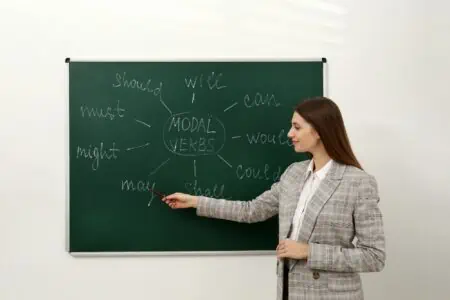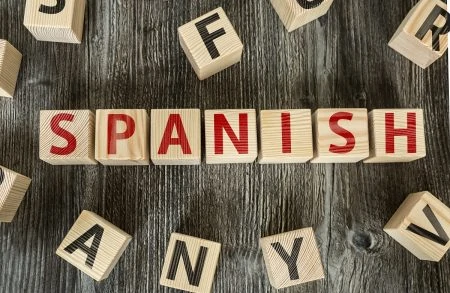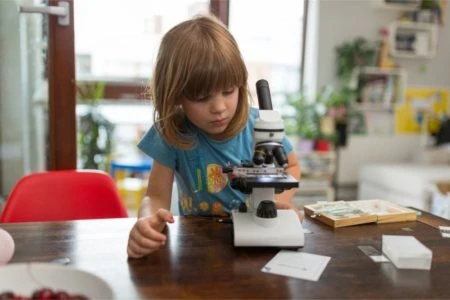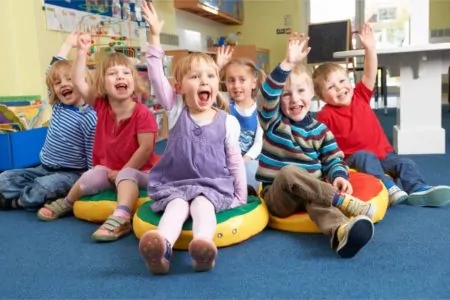Ready to master the English language? It all starts with the engine of every sentence: the verb.
We use verbs in almost every breath we take, so understanding how they work is crucial. Whether you are polishing your own writing or helping with homework, you are in the right place.
I’ll walk you through exactly what a verb is, the different types you need to know, and a massive list of over 250 examples to help you build your vocabulary. Let’s dive in.
What Are Verbs?
A verb is an action word. It describes doing something, a state of being, or an occurrence. Simply put, verbs are the heartbeat of a sentence; you generally cannot have a sentence without one.
Verbs describe what a noun (a person, place, or thing) is doing.
Here are a few clear examples with the verb in bold:
- Lisa calls her friend. (Lisa performs the action of calling).
- Canada is a large country. (Canada is linked to the description “large” by the state-of-being verb “is”).
- The water spills on the floor. (The water performs the action of spilling).
In some cases, a verb can stand alone as a complete sentence. Commands like “Run!” or “Stop!” are grammatically correct sentences consisting of just one verb.
Verbs aren’t always about movement. They can describe a state of being (non-action). For example: “Laura thought about her job.” You can’t see the thinking happening, but it is still an action Laura performs.
If you are ever unsure if a word is a verb, ask yourself: “Can I do this?” or “Is this happening?”
Types of Verbs
While there are thousands of verbs, they generally fall into three main buckets: action, linking, and helping.
- Action Verbs: These describe a physical or mental act (e.g., run, dream).
- Linking Verbs: These connect the subject to a description (e.g., is, seem). Think of them as an equals sign.
- Helping Verbs: These assist the main verb to show tense, mood, or voice (e.g., will, has, can).
Action Verbs
Action verbs are the most common. They describe physical or mental activities. If a person, animal, or object can “do” the word, it is an action verb.
For example, a dog can bark, a car can crash, and a student can learn.
We break these down further into physical and mental actions.
Physical Action Verbs
These describe tangible movements involving the body or objects. If you can see someone doing it, it’s a physical action verb.
Examples of Physical Action Verbs
Here is a list of 50 common physical action verbs:
- Act
- Flirt
- Lend
- Quack
- Unlock
- Avoid
- Graduate
- Lift
- Read
- Volunteer
- Brew
- Grasp
- Monitor
- Rewind
- Vote
- Bring
- Harvest
- Move
- Run
- Wait
- Cough
- Hit
- Nourish
- Spark
- Walk
- Cover
- Invite
- Nuzzle
- Swim
- Write
- Dive
- Juggle
- Obey
- Transform
- Xerox
- Drink
- Jump
- Offer
- Trim
- Yawn
- Exit
- Kneel
- Play
- Tuck
- Zoom
- Flail
- Knock
- Pour
- Uninvite
- Zip
How To Use Physical Action Verbs
Seeing these in context helps clarify their role.
- He scratched his head while smiling.
- My mother called my brother and cried.
- I stood at the podium and read my speech.
Mental Action Verbs
Mental action verbs describe cognitive processes. You cannot see them happening, but the brain is still doing work. Words like think, know, and decide fit here.
Examples of Mental Action Verbs
Here are 50 verbs that happen inside the mind:
- Accept
- Feel
- Like
- Question
- Think
- Assess
- Forget
- Love
- Realize
- Try
- Believe
- Guess
- Mind
- Recall
- Understand
- Brainstorm
- Hope
- Miss
- Remember
- Unpack
- Compare
- Hear
- Motivate
- See
- Visualize
- Conclude
- Imagine
- Organize
- Smell
- Want
- Contrast
- Include
- Overthink
- Solve
- Watch
- Decide
- Judge
- Perceive
- Spot
- Worry
- Doubt
- Know
- Plan
- Surprise
- Wrestle
- Evaluate
- Learn
- Prioritize
- Suspect
- Yearn
How To Use Mental Action Verbs
These verbs allow you to express thoughts, emotions, and logic.
- She believed in herself.
- He tried not to judge the situation too quickly.
- We hoped the weather would improve before we decided to leave.
Linking Verbs
Linking verbs do exactly what their name implies: they link the subject to a detail about that subject. They do not show action.
Think of a linking verb as a mathematical equals sign (=).
For example: “Rachel is a nurse.” (Rachel = Nurse). Or, “The cat seems hungry.” (Cat = Hungry).
Examples of Linking Verbs
These 24 verbs are commonly used to connect subjects to descriptions:
- Am
- Being
- Grow
- Smell
- Appear
- Come
- Is
- Sound
- Are
- Do
- Look
- Taste
- Be
- Does
- Make
- Turn
- Become
- Feel
- Remain
- Was
- Been
- Get
- Seem
- Were
How To Use Linking Verbs
Use these when you want to describe a state of being rather than an activity.
- His hair turned gray from stress.
- Elijah and Eliza make a cute couple.
- The teacher seems grumpy, so the class is quiet.
Helping Verbs
Helping verbs (also called auxiliary verbs) partner with a main verb to create a “verb phrase.” They help set the timeframe (tense), the mood, or the voice of the sentence.
For example, in the sentence “I will run,” the word will helps the word run happen in the future.
There are two primary categories of helping verbs: Auxiliary and Modal.
Auxiliary Verbs
These are the workhorses of grammar. They change the tense to past, present, or future. The main players are forms of to be, to have, and to do.
- To be: am, is, are, was, were, be, being, been.
- To have: have, has, had.
- To do: do, does, did.
They work with a main verb to complete the thought. For example: “She is working.” Here, “is” (helping) works with “working” (action) to show present continuous action.
Examples of Auxiliary Verbs
Here are 14 common auxiliary verbs:
- Am
- Be
- Being
- Do
- Had
- Have
- Was
- Are
- Been
- Did
- Does
- Has
- Is
- Were
How To Use Auxiliary Verbs
You can use these to create negative statements, ask questions, or shift time.
- I will be grading papers all night.
- Does the boss know you are out sick?
- Rebecca has read this book already.
Modal Verbs
Modal verbs express possibility, necessity, or permission. Unlike other verbs, they never change their form (you never add an “s” or “ed” to them).
They convey abstract concepts like “might,” “should,” or “can.”
Examples of Modal Verbs
There are fewer of these, but they are vital for nuance:
- Can
- May
- Must
- Shall
- Will
- Could
- Might
- Ought to
- Should
- Would
How To Use Modal Verbs
Modals always sit before the main verb.
- You must not hesitate.
- Sarah can recall every detail.
- My parents should have booked tickets earlier.
Other Important Verb Categories
Before we get to the big list, there are two other distinctions that often confuse people: Regular vs. Irregular, and Transitive vs. Intransitive.
Regular vs. Irregular Verbs
This distinction tells you how to form the past tense.
- Regular Verbs: You simply add “-ed” to the end to make it past tense. (Walk becomes walked; talk becomes talked).
- Irregular Verbs: These follow their own rules. You have to memorize them. (Eat becomes ate; go becomes went; buy becomes bought).
Transitive vs. Intransitive Verbs
This describes whether a verb needs an object to make sense.
- Transitive Verbs: These need a direct object (something receiving the action). You can’t just say “I bought.” You have to say “I bought a car.”
- Intransitive Verbs: These do not need an object. You can simply say “I sneezed” or “The baby slept.”
List of Verbs in Alphabetical Order
Below is a comprehensive list of verb examples from A to Z to help expand your vocabulary.
Verbs That Start With A
- Abide: I abide by the rules.
- Absorb: The sponge will absorb the water.
- Account: They account for all the details.
- Act: He acts funny around his girlfriend.
- Activate: Did you activate the alarm?
- Affect: The light affects my eyes.
- Anchor: The boat anchors in place.
- Answer: Answer my phone call.
- Arrange: She arranged a bake sale.
- Atone: He atoned for his sins.
Verbs That Start With B
- Bag: I bagged groceries all weekend.
- Band: I band together the files.
- Bark: The dogs bark loudly.
- Bathe: I bathed in the tub.
- Bawl: He bawled at the movie.
- Birth: She birthed a baby girl.
- Bite: Don’t bite your sister!
- Blaze: The fire blazed through the woods.
- Breastfeed: She will breastfeed the baby soon.
- Breathe: I can’t breathe underwater.
Verbs That Start With C
- Calculate: Oliver calculated the risks.
- Call: She calls her father every evening.
- Cancel: She canceled her subscription.
- Canvass: The police had canvassed the area already.
- Care: I don’t care about soccer.
- Carry: Can you carry his bags?
- Certify: Are you certified in first-aid?
- Chain: Lewis chained the gate shut.
- Chip: I chipped a tooth.
- Collaborate: We collaborated on a project.
Verbs That Start With D
- Damage: Teresa damaged her car.
- Declutter: Have you decluttered the bathroom?
- Decorate: I might decorate this weekend.
- Delegate: The teacher will delegate the tasks.
- Deodorize: Deodorize the room with baking soda.
- Descale: The maid descaled the iron.
- Destroy: Michael destroyed his toys.
- Discourage: I discouraged Tim from riding his motorbike.
- Distribute: Ronald distributed the information.
- Downgrade: She downgraded her property.
Verbs That Start With E
- Earn: Paul and Leo earned their money.
- Ease: I slowly eased off the caffeine.
- Eat: Nobody ate the pies.
- Electrocute: Be careful you don’t electrocute yourself.
- Elevate: He elevated his status.
- Embark: William embarked on his journey.
- Enlighten: Enlighten me on your findings.
- Erode: The rock was already eroded.
- Evaluate: My brothers evaluated the height.
- Evoke: The movie evoked a lot of emotion.
Verbs That Start With F
- Face: Face away from the wind.
- Fade: The scene faded to black.
- Fake: He faked his own death!
- Fiddle: He fiddled with his pencil during the exam.
- Fight: The siblings fought like cats and dogs.
- Film: Please don’t film the show.
- Finish: Roscoe never finishes his dinner.
- Flare: The pain flared up.
- Flush: Make sure you flush the toilet.
- Freak: She totally freaked out!
Verbs That Start With G
- Gag: He gagged on his dinner.
- Gallop: The horse will gallop across the field.
- Garden: Joe gardened all summer.
- Ghost: Quinn ghosted her date.
- Glide: The queen glided past.
- Glisten: You will glisten in that dress.
- Grab: Let me grab my bag.
- Grieve: I grieved the loss of my dog.
- Guide: We have been guided throughout.
- Gulp: She gulped down the water.
Verbs That Start With H
- Hack: Did you hack the computer?
- Hand: Michelle handed me the phone.
- Harden: The paste hardened on the wall.
- Hear: I don’t hear anything.
- Hesitate: I’m afraid I might hesitate.
- Hire: They hired a new guy.
- Hit: I haven’t hit the jackpot yet.
- Honk: The car behind me is honking.
- Huff: He huffed loudly.
- Hypothesize: Veronica hypothesized beforehand.
Verbs That Start With I
- Ice: My brother iced the cake.
- Illuminate: The highlighter illuminated the book.
- Imagine: Can you imagine a better day?
- Implore: I implore you to think again.
- Improve: How can we improve the stats?
- Indicate: They have indicated this before.
- Infect: The virus will infect many people.
- Insist: The couple had insisted on more guests.
- Inspire: The music inspired me.
- Intervene: Can the security intervene, please?
Verbs That Start With J
- Jam: The friends jammed on their instruments together.
- Jaunt: Mom and Dad went for a jaunt.
- Jeopardize: I cannot jeopardize this opportunity.
- Jiggle: The jelly jiggles on the plate.
- Jive: The teachers were jiving at the disco.
- Join: Join your hands together.
- Joke: Are you joking?
- Judge: I will not judge anybody.
- Journal: I haven’t journaled in months.
- Justify: Dave justified his actions.
Verbs That Start With K
- Kayak: Do you kayak with friends?
- Keel: The boat keeled over.
- Keep: I’m keeping too many secrets.
- Key: Key in your password.
- Kick: It’s time to kick the ball.
- Kill: I would kill for more pizza.
- Kiss: Olivia kissed her husband goodbye.
- Kneel: Christine knelt down.
- Knock: I knocked five times.
- Know: The cats know where to use the bathroom.
Verbs That Start With L
- Label: Theo doesn’t label himself.
- Lactate: Women lactate after birth.
- Land: The plane landed safely.
- Laugh: I will laugh at his jokes.
- Lead: He’s leading a double life.
- Lend: Evan lent me his sweater.
- Light: Light the candles.
- Lose: I have lost my earrings.
- Love: He loved his mother.
- Lunge: The king lunged forward.
Verbs That Start With M
- Make: They made a lovely cake.
- Manifest: Do you manifest your future?
- Market: We are marketing the product to younger people.
- Mask: Mask up!
- Measure: Zoe measured the room.
- Memorize: I have to memorize the numbers.
- Message: Gertrude messaged me back.
- Milk: The farmer will milk the cows tomorrow.
- Mistreat: I haven’t mistreated anyone.
- Mourn: They will mourn for one year.
Verbs That Start With N
- Narrow: Kevin narrows his eyes.
- Need: I don’t need antibiotics.
- Neglect: The parents never neglected their son.
- Niggle: The thought niggled me for a while.
- Nip: The needle nipped my skin.
- Nod: The baby nods.
- Notice: I noticed a lot of inconsistencies.
- Normalize: Nina normalizes women in tech.
- Nourish: It’s important to nourish your body.
- Nurse: She nursed him back to health.
Verbs That Start With O
- Obey: My dog won’t obey me!
- Observe: Becca observes everything.
- Offer: She offers him a slice of cake.
- Oil: I oiled my desk with wax.
- Omit: Was any information omitted?
- Open: We opened the windows earlier.
- Operate: I don’t know how to operate a car.
- Orbit: It’s orbiting around in space.
- Organize: I’m tired of organizing everything.
- Overcook: You always overcook the chicken.
Verbs That Start With P
- Pack: They haven’t packed yet.
- Pander: I won’t pander to your every need.
- Paralyze: The fall paralyzed Noah.
- Parent: She parented her brothers.
- Pass: The car passed quickly.
- Patch: Grandma patched up my blanket.
- Perfect: I have perfected the backstroke.
- Photograph: Can I photograph you?
- Pick: Will Drew pick her flowers?
- Pitch: Jessica had pitched her idea before Tracy.
Verbs That Start With Q
- Quadruple: The numbers quadrupled.
- Qualified: Rosie qualified for the Olympics.
- Quarrel: They’ve been quarreling all night.
- Quarter: Simon quartered the pizza.
- Quench: The water quenched his thirst.
- Question: The students question the teacher.
- Queue: I’ve been queuing for hours.
- Quit: I would love to quit my job.
- Quiz: Shona quizzed her sister.
- Quote: She will quote the book forever.
Verbs That Start With R
- Rain: It will rain on the coast.
- Rake: My dad raked the leaves.
- Reason: Please reason with me.
- Record: Stephanie recorded a hit song.
- Reduce: The size has reduced considerably.
- Reject: Eloise rejected her date.
- Retract: The governor retracted his statement.
- Reverse: Reverse the video.
- Rise: She is rising above her colleagues.
- Ruffle: The duck ruffles its feathers.
Verbs That Start With S
- Sample: Can I sample the ice cream flavors?
- Save: Save a slice for Alisdair.
- Scan: She scanned her eyes over the page.
- Seat: I’ll seat myself down.
- Self-publish: Do you think you’ll self-publish your novel?
- Sew: I tried sewing it back together.
- Shelter: My mother sheltered me during childhood.
- Sign: Tori signed her name.
- Skip: Skip home with me.
- Snatch: Lisa, don’t snatch the toy!
Verbs That Start With T
- Tell: I’ll tell you my real thoughts.
- Testify: She will testify in court.
- Throw: Throw in the towel.
- Title: Who titled the book?
- Torch: He torched the place down.
- Touch: I will touch a snake at the zoo.
- Track: I’m asking you to track the data.
- Travel: We traveled across the world.
- Trust: Trust me.
- Tumble: I tumbled down the hill.
Verbs That Start With U
- Unclasp: Can you unclasp my necklace?
- Unbutton: I unbuttoned the dress.
- Undermined: He undermined my ability.
- Unfriend: Jerry unfriended Isaac on Facebook.
- Unite: We will unite next week.
- Upgrade: I want to upgrade my car.
- Upset: She upset her daughter.
- Urbanize: The government urbanized the countryside.
- Use: You used too much makeup.
- Utter: Don’t utter another word.
Verbs That Start With V
- Vaccinate: The crew was vaccinated against diseases.
- Validate: Nick validated my feelings.
- Value: Do you value my time?
- Verbalize: I can’t verbalize my point well.
- Verify: Pablo couldn’t verify the information.
- View: We viewed the house yesterday.
- Violate: He violated his parole.
- Visit: What countries does Helen want to visit?
- Vocalize: The singers vocalize beautifully.
- Volunteer: Greg volunteers weekly.
Verbs That Start With W
- Wait: Fiona will wait for the results.
- Wake: Wake up!
- Wash: Have you washed the dishes?
- Wear: I don’t like wearing jeans.
- Whip: Whip yourself into shape.
- Wind: Sean wound the cable back up.
- Win: Lane won the race.
- Work: I worked for Mcdonald’s last year.
- Worry: I had worried about money for a while.
- Write: I wrote a book.
Verbs That Start With X
- Xeriscape: Iain xeriscaped the garden.
- Xerocopy: I need you to xerocopy this report.
- Xerox: George is xeroxing the papers now.
- X-ray: The doctor will X-ray your arm.
Verbs That Start With Y
- Yank: Blake yanked at his mother’s hair.
- Yap: The dogs yapped all morning.
- Yawn: The baby yawned widely.
- Yearn: Anne yearned for her husband to return.
- Yeet: My brother yeeted his ball across the yard.
- Yell: The neighbors are always yelling.
- Yellow: The books on the windowsill are yellowing.
- Yield: The plant should yield many strawberries.
- Yodel: Chris can yodel.
- Yowl: The cat next door yowled.
Verbs That Start With Z
- Zap: I was zapped by the switch.
- Zeolitize: John zeolitized the rocks.
- Zero: It’s time to zero in on the target.
- Zest: Will you zest the lemon?
- Zigzag: The car zigzagged all over the place.
- Zinc: The metal will be zinced tomorrow.
- Zing: The grasshoppers zing in the grass.
- Zip: Zip up your jacket.
- Zone: Yolanda had already zoned out.
- Zoom: The camera zoomed in.









